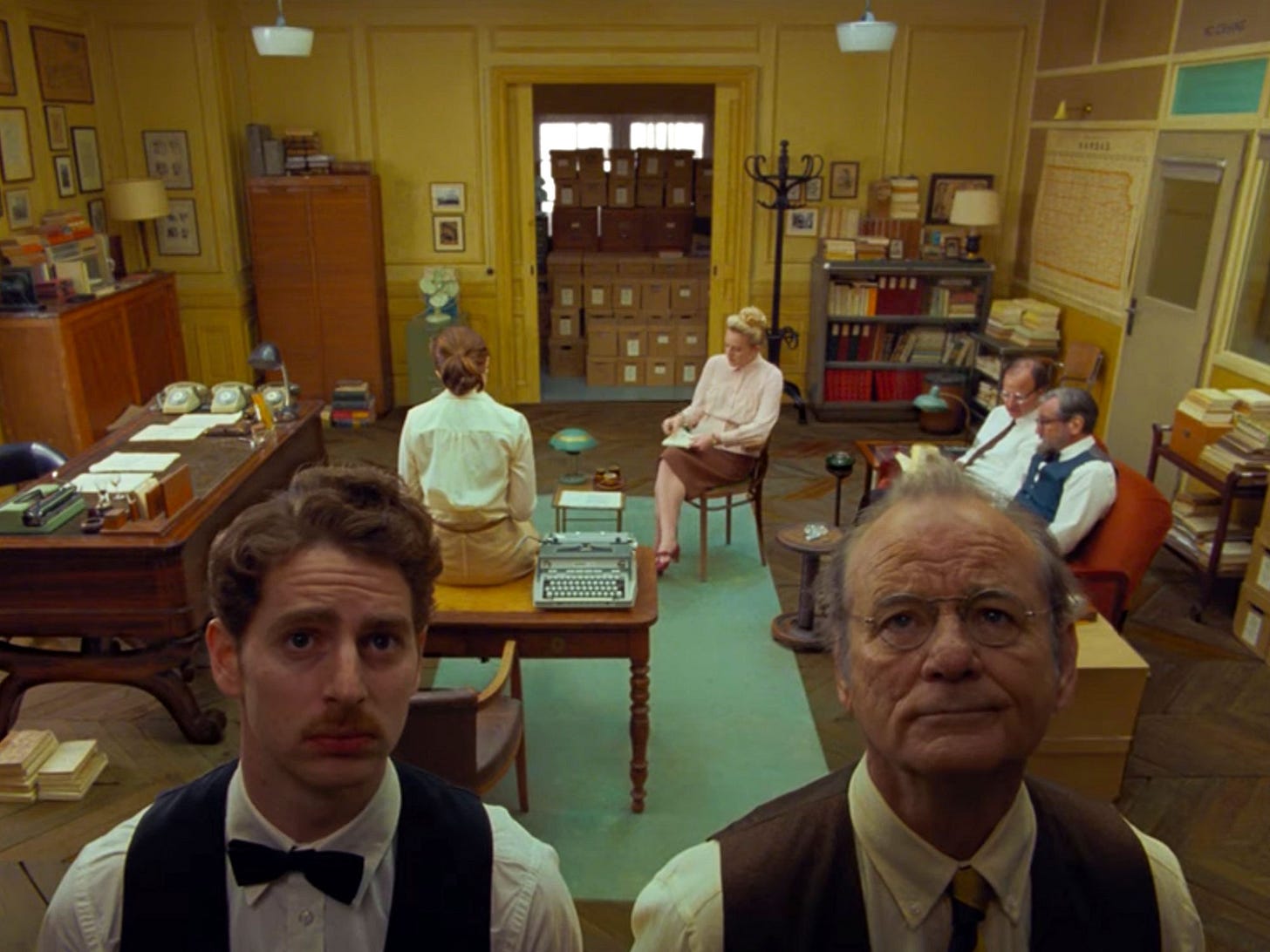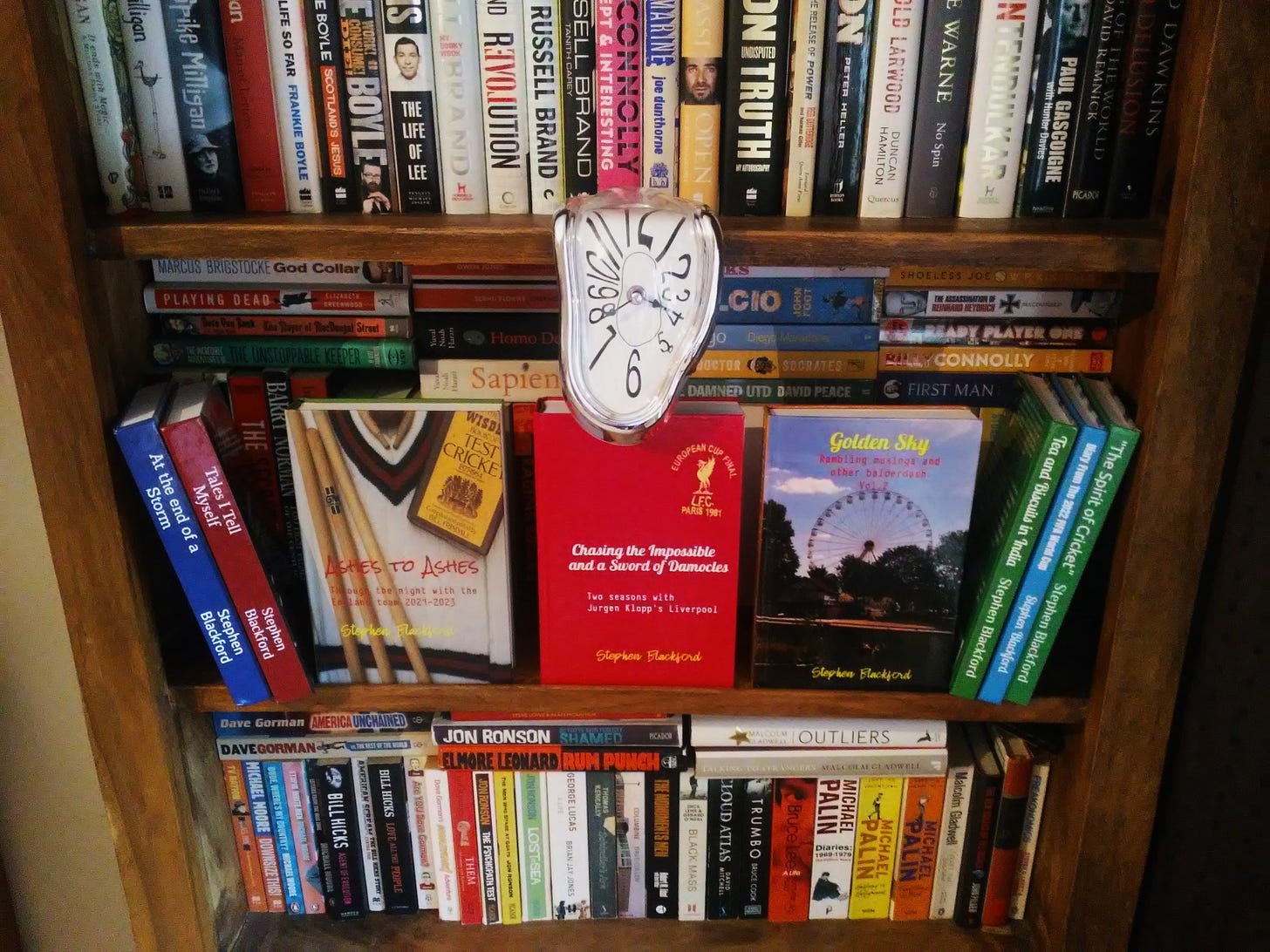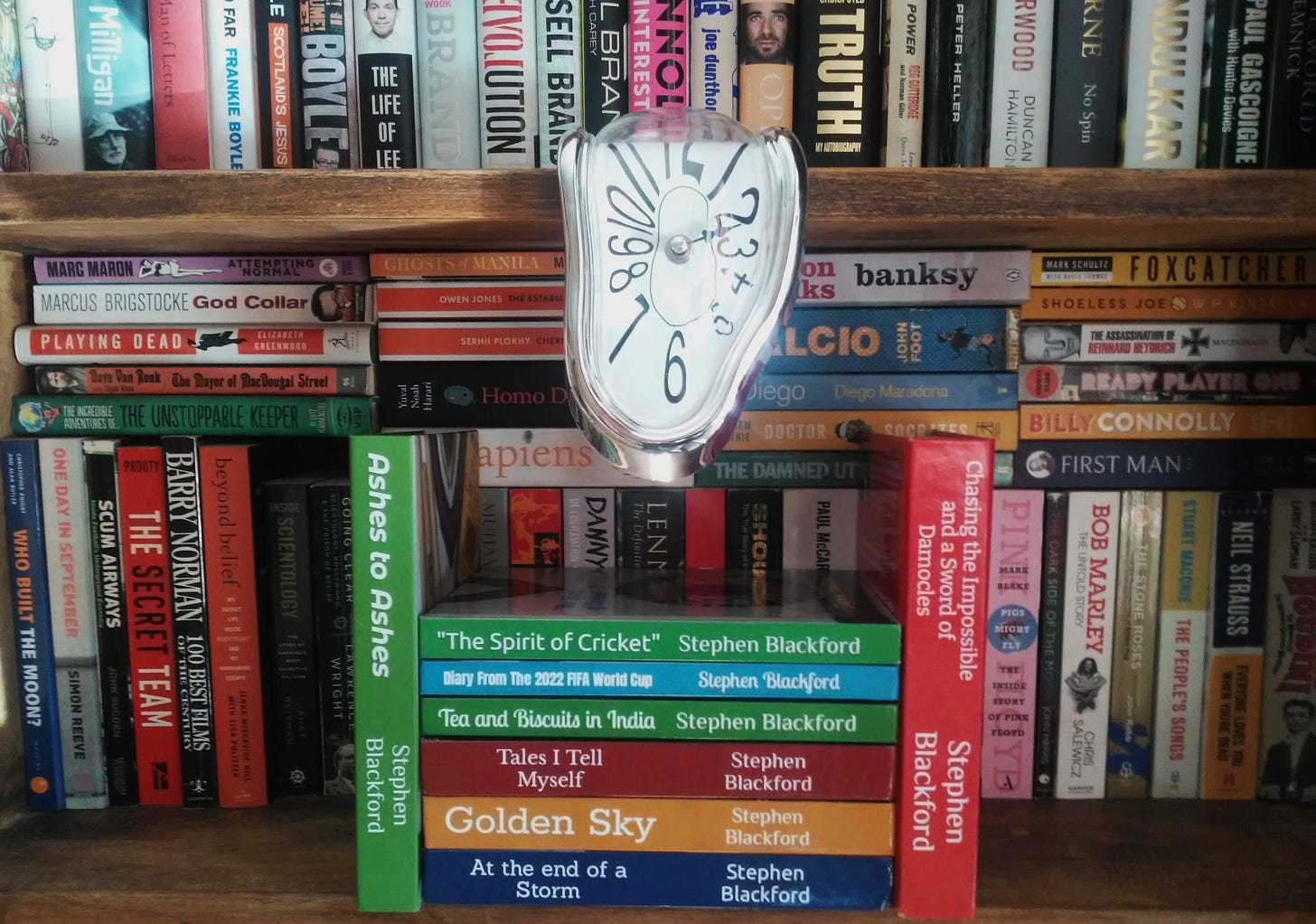
If you wish to join in with the ethos of my “Read Along” series of articles on favourite films of yesteryear then please find below a choice of either my Youtube or Rumble channel versions of my reading of my review direct to camera together with my spoiler free review in full. I’ve also linked my opus career article on the films of director Wes Anderson and a link to my “Essential Films Review Collection” on Amazon with all 7 volumes free to read if you have an Amazon Kindle “Unlimited” package.
I hope you enjoy.
"The French Dispatch" - Youtube
"The French Dispatch" - Rumble
"The Essential Film Reviews Collection" Vol.7 - available via Amazon
"Wes Anderson and 8 twisted comedies" - original article
As a fan of nearly 25 years since “Rushmore” blew my mind in 1998 and an obsessive for a decade after the release of “Moonrise Kingdom” in 2012, I’ve been rather excited to get my first glimpse of Wes Anderson’s new film. As the article linked above will hopefully demonstrate, I truly obsess over seemingly every frame of Wes’ films and have long adored the quirky offbeat comedies of the aforementioned “Rushmore” or the more awkward and squirming nature as well as the immense comedic quotas in “The Royal Tenenbaums”, “The Life Aquatic with Steve Zissou” and “The Darjeeling Limited”. The attention to detail is paramount in “Fantastic Mr Fox”, “The Grand Budapest Hotel” and “Isle of Dogs” and the reason why I adore “Moonrise Kingdom” is perhaps because Wes wraps everything that so epitomises his films into his 2012 classic and absolutely smothers it with humanity, exploration, freedom and love in the process.
If you’re new to a Wes Anderson film, the picture book nature or the seeming blend of both live action and animation may astound you on first viewing, and equally so the extreme close ups or the obvious blend of the real and the surreal and especially so the overhead shots of inanimate objects, maps, tasks, agendas or a photograph or even a cloakroom ticket. The regular screen ratio size changes (from 16:9 widescreen to 4:3 Letterbox) may befuddle newer viewers to a Wes Anderson film, as will the constant changes between Black and White and Colour which is especially prevalent in this, his latest surreal cinematic offering. If like me you were expecting these tropes to be very definitely to the fore, then you may also conclude like me that “The French Dispatch” is perhaps the most Wes Anderson film Wes Anderson has ever created, as it’s soaked to its very film marrow with the all of the above as well as Wes’ brilliant use of so many actors and actresses who cannot wait to return to work on a film with the meticulous master of the mesmerising.
So if “The French Dispatch” is in fact the most Wes Anderson inspired film he has directed to date, why don’t I love it so?
I’ll commence and conclude this brief instant reaction review with the simple statement that I smiled all the way through this first ever viewing. I just smiled and relaxed into Wes’ world for a couple of hours because I love his films with a hearty and human passion as they’re all meticulous masterpieces and this is no different. It’s beautiful, enchanting, melodic, chaotic, obsessional, quirky, surreal and exactly the template expected from a Wes Anderson film. The humour is dark, off kilter and like the film as a whole, will no doubt surprise you with further viewings. It’s a lame generalisation but never more true than with a Wes Anderson film. The first viewing kaleidoscope of screen ratio changes and colour changes, surreal almost picture book settings infused with the most strangest of characters and a narrative played out against a backdrop of a continuing narration from the main characters, oblique angles, moving cameras, overhead shots, extreme close ups and title cards with on screen text, was never more effective than in the first of our three main chapters. There are actually five, but the introduction of the film together with it’s first main chapter is so quintessentially Wes Anderson and despite smiling throughout the remaining two main chapters, they left me more than a little bemused and more than a little cold.
The film is ostensibly the culmination of the final issue of the titular “French Dispatch”, a magazine written in the French town of Ennui-sur-Blasé and from here we find a continuance of the strangest character creations to appear in a Wes Anderson film, and the returning stars who do so time and again for the great master. Bill Murray returns here as “Arthur Howitzer Jr”, the magazine’s editor and faraway, lost in his own thoughts and perhaps quietly ennui laden too. Owen Wilson is immediately introduced as “Herbsaint Sazerac” a cycling reporter giving us both a surreal journey around the town as well as the first of the two minor articles for the magazine’s final publication. The first major article entitled “The Concrete Masterpiece” follows and it’s the film’s true stand out highlight. Lea Seydoux returns here as “Simone”, a Prison Officer at the local prison for the criminally insane, and a muse for “Moses Rosenthaler”, a convicted murderer and abstract painter and artist. Bucking the trend of returnees in star roles it is a wonderful and perfectly befitting quirky performance from first timer Benicio Del Toro as the convicted murderer that immediately stood out for me. Spoilers won’t allow for the revealing of the nature of the relationship between Simone and Moses but it’s the film’s beating heart and the perfect encapsulation of the best twisted story presented here of the three.
Tilda Swinton is another returnee to a Wes Anderson film as “J K L Berenson” who delivers a lecture on the life and times of the lovelorn artist Moses in a lofty, air of entitlement way that was as purposeful as it was deliberate, but it grated on me almost immediately. From hereon in, despite surreal characters such as story telling journalists, revolutionaries, Police Commissioners and young student idealists amongst many, many more, and brought to the screen by Frances McDormand, Adrien Brody, Timothee Chalamet, Jeffrey Wright, Mathieu Almaric and a huge cast of first time collaborators or returnees, I continued to smile throughout a film I wasn’t particularly enjoying any more. Perhaps the first chapter was so perfect that everything that came after simply couldn’t live up to the highest of bars that had already been set? Frances McDormand was superb in Act 2 “Revisions to a Manifesto” and Jeffrey Wright similarly in the last Act, and I was still smiling.
But I was all rather befuddled and bewildered by the last two Acts despite smiling at the monumental artistic achievement that Wes Anderson has yet again created. I’ll like it far more on a second and third viewing and these viewings will be had as I adore the films of Wes Anderson on a par with my favourite contemporary filmmakers: Coen Brothers, Tarantino, Nolan, Burton and Wes’ namesake, Paul Thomas Anderson. I just thought there was some heart missing in the final two Acts of this film. Maybe I’ll find it with my soon to be repeat viewings?
“The French Dispatch” is goddamn beautiful.
There was just a little something missing though.
Thanks for reading. If you like the premise of this idea of “Read Along”, then you might also enjoy:
"Amores Perros (2000) - Read Along
"True Romance" (1993) - Read Along
"Red State" (2011) - Read Along







I think I thought the same but, maybe, I'll give it another go. Wes has a new movie coming out soon and the trailer plays up all his usual individual stylistic tropes (with, of course, some familiar faces). I really hope he surprises us with something a little out of his usual box. I hate to think of him treading water or getting too comfortable with his lot. Well written appraisal by the way!